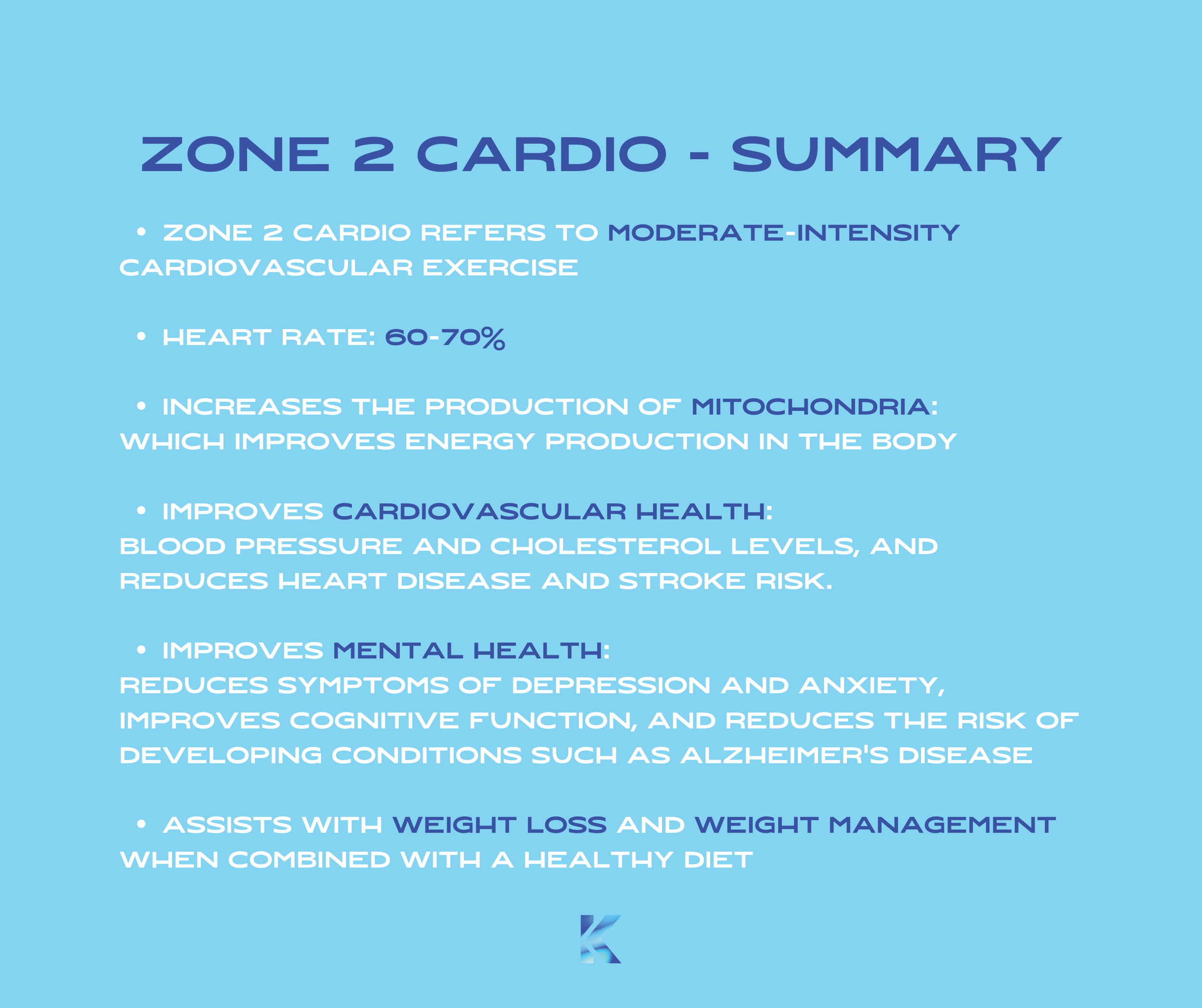Why do Zone 2 Cardio?
If you're looking to get in some cardio, moderate-intensity exercise might be the way to go. This type of exercise is typically characterized by a heart rate between 60 and 70% of your maximum heart rate.
One of the primary mechanisms behind moderate-intensity cardio is the increased production of mitochondria, which are energy-producing structures in your cells. When you engage in moderate-intensity exercise, your body's demand for energy increases, and more mitochondria are produced. This process, called mitochondrial biogenesis, helps improve your body's ability to produce energy and can lead to several health benefits.
One of the key benefits of moderate-intensity cardio is improved cardiovascular health. This type of exercise has been shown to improve blood pressure, cholesterol levels, and overall cardiovascular fitness. In addition, moderate-intensity cardio has been linked to a reduced risk of heart disease and stroke.
Moderate-intensity cardio can also benefit your mental health. Exercise, in general, has been shown to reduce symptoms of depression and anxiety, and moderate-intensity cardio appears to be particularly effective in this regard. It has also been linked to improved cognitive function and a reduced risk of developing conditions like Alzheimer's disease.
In addition to these benefits, moderate-intensity cardio can help with weight loss and weight management. When you perform an exercise at a moderate intensity level, your body relies more on fat stores for energy rather than carbohydrate stores. This is because your body can more efficiently use fat as fuel at lower intensities, as the energy demands are not as high. In contrast, higher-intensity exercise requires a greater energy demand and relies more on carbohydrate stores for fuel. While this type of exercise may not burn as many calories as high-intensity workouts, it can still be an effective tool for weight loss combined with a healthy diet.
Overall, moderate-intensity cardio is a great way to improve your cardiovascular and mental health and can assist with weight loss and weight management. Regular moderate-intensity exercise can help you lead a healthier, more active life. Try walking, cycling, or dancing for at least 150 minutes per week!

